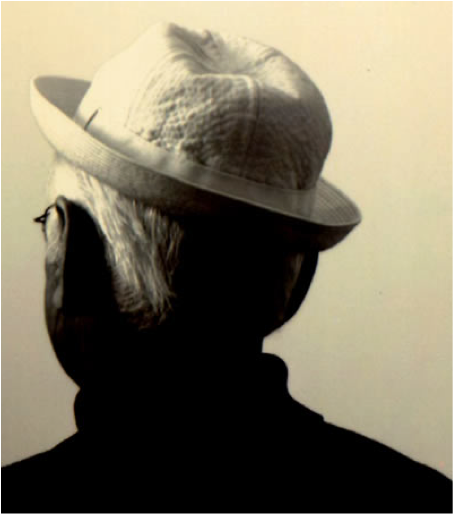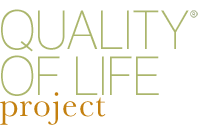
I came across this essay that Norman Lear wrote in Life magazine in 1992. It is great. I mean really great. For those of you that have not heard of Norman Lear he is a hugely talented entrepreneur and humanitarian. Best known for creating All in the Family and The Jeffersons. He’s also the founder of People for the American Way.
More Reflections on the Meaning of Life
Published by the Editors of Life Magazine, 1992
Rome fell, according to historian Lewis Mumford, not through political or economic or military ineptitude. Rome collapsed through “a leeching away of meaning and a loss of faith.” Mumford might just as well have been speaking about our culture” a society afflicted by cynicism, selfishness and an erosion of civility, a society that has lost faith in its leaders and institutions and hungers for a greater sense of human connectedness.
It is no coincidence, I submit, that ours is a society fixated on the externals. We are preoccupied with the pursuit of bottom lines, consumption, careerism” and winning. We pursue a vision of human salvation through “progress,” one of the most powerful unifying myths of our 20th century life. We place our faith in what we can see, touch and hear, and instinctively grasp for numbers to understand the world. We remain suspicious of the unquantifiable, the intuitive, the mysterious.
Yet a culture that becomes a stranger to its own inner needs” which are, for better or worse, unquantifiable, intuitive and mysterious” is a culture that has lost touch with the best in its humanity, its sense of shared moral values, its ethics, creativity, passion, wonder and joy.
Could it be that, individually and collectively, we are failing to address one of our most basic human needs” the exploration of our mysterious inner life?
However wondrous, useful, ingenious and economically profitable the fruits of “progress,” none of them satisfy the needs that relate to the inner life, where the capacities for awe, wonder and mystery abide and seek nourishment. Our failure to look within ourselves is directly related to our knowing destruction of the life-sustaining capacities of the planet, The logging of ancient forests, the frequent oil spills at sea, the perpetual creation of garbage, the extinction of 10,000 species per year” the whole litany of slow-motion environmental catastrophes from acid rain to the ozone layer to global warming” are acts of a society that has lost its sense of identity as a mortal, endangered species on a fragile little planet in a vast cosmos. How else could a society show such little regard for posterity and commonweal, and engage in such flagrant acts of psychic self-mutilation?
The hunger in the American psyche for connectedness and spiritual renewal is not confined to our nation. It extends to the peoples of third-world nations, many of whom have been made to feel estranged” by progress and politics, by poverty and famine” from the spiritual world their ancestors held dear. It extends also to the Soviet Union and Eastern Europe, where the suppression of the spirit has been deliberate for decades. This is, in fact, a global hunger.
Vaclav Havel, Czechoslovakia’s dissident-turned-President, points out that the most dangerous walls are not political or military boundaries but, as he puts it, “the walls that mutually divide individual people and that divide our own souls.” As a corrective, Havel announced that his presidential agenda would be “to bring spirituality, moral responsibility, humaneness and humility into polities and, in that respect, to make clear that there is something higher above us.”
Why has no American politician dared to speak similarly, let alone adopt such a platform? How surprised would they be to learn that most Americans would
welcome a call to make commitments to higher values, to bring spirituality, moral responsibility, humaneness and humility into politics?
Too squeamish to confront these issues, mainstream secular culture has instead surrendered this territory to those on the fringes” the revivalists, the New Age swamis, the self-help ego boosters, the religious right. This has been a mistake. The desire to lead a more purposeful life, to search for ultimate meanings, is a central theme of human experience.
We need to reclaim this domain as a legitimate and urgent cultural concern. In so doing, we must respect each other’s faiths, of course. And let us standby the traditional First Amendment wall that separates church and state. But let us not be so skittish or parochial as to think that one of the great human imperatives” the rediscovery and reinvention of a common spiritual life in our desolate modern age” can or should be suppressed. If we think of our nation’s diverse religions as uniquely different streams that each feed into a single thousand-mile river” a river of humanity – can we agree to discuss that river openly and freely, as a common source of values that nurtures all of our spiritual traditions?
This spiritual urge is undeniable. From the beginning of human history, we have been embarked on a search for transcendent meaning. It is as if we were genetically coded to believe that there is a greater force and mystery framing our lives. Which is why the next great improvement in the human condition will occur not through a millennial faith in technology but by uncovering a new, more spiritually satisfying notion of “progress,” one that requires a vertical leap of faith, a leap in our inner development. The answer is not to ignore these issues in schools and other institutions. It is to fling open the doors” and find new ways of learning more about our myriad values and spiritual traditions in order to realize what we all hold in common as a species.
Norman Lear, television producer, writer and director, created All in the Family and is a founder of the civil rights organization People for the American Way.
